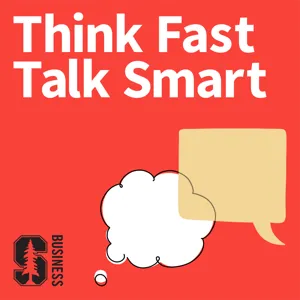The ultimate guide to OKRs | Christina Wodtke (Stanford)

Brought to you by Miro—A collaborative visual platform where your best work comes to life | Dovetail—Bring your customer into every decision | Writer—Generative AI for the enterprise
—
Christina Wodtke is an author, Stanford University professor, and speaker who teaches strategies for building high-performing teams. She’s also the author of Radical Focus, which some consider the de facto guide to OKRs. In today’s episode, we dive into OKRs and how they can be used to help your team achieve better results. Christina shares her expertise on crafting OKRs, how she uses them in her personal life, and common mistakes you should avoid when you sit down to write your own. She discusses effective goal setting and outlines a systematic approach to achieving key results. Finally, Christina gives some specific tips on how to improve your storytelling and drawing skills and explains why it’s smart to set ambitious goals.
Find the full transcript here: https://www.lennyspodcast.com/the-ultimate-guide-to-okrs-christina-wodtke-stanford/
Where to find Christina Wodtke:
• Twitter: https://twitter.com/cwodtke
• LinkedIn: https://www.linkedin.com/in/christinawodtke/
• Website: https://eleganthack.com/
Where to find Lenny:
• Newsletter: https://www.lennysnewsletter.com
• Twitter: https://twitter.com/lennysan
• LinkedIn: https://www.linkedin.com/in/lennyrachitsky/
Referenced:
• OKR worksheet template: http://eleganthack.com/wp-content/uploads/2022/03/OKR_Worksheet.pdf
• Yahoo’s peanut butter memo: https://www.wsj.com/articles/SB116379821933826657
• The Five Dysfunctions of a Team: A Leadership Fable: https://www.amazon.com/Five-Dysfunctions-Team-Leadership-Fable/dp/0787960756/
• Radical Focus: Achieving Your Most Important Goals with Objectives and Key Results: https://www.amazon.com/Radical-Focus-Achieving-Important-Objectives/dp/0996006087
• Pencil Me In: https://www.amazon.com/Pencil-Me-Christina-Wodtke-ebook/dp/B075Z8J35G?
• The Back of the Napkin: Solving Problems and Selling Ideas with Pictures: https://www.amazon.com/Back-Napkin-Expanded-Problems-Pictures/dp/1591842697/ref=sr_1_1
• The Minto Pyramid Principle: https://www.barbaraminto.com/
• Lane Shackleton’s guest post on Lenny’s Newsletter: https://www.lennysnewsletter.com/p/how-coda-builds-product
• The Product Trio by Teresa Torres: https://www.producttalk.org/2021/05/product-trio/
• Ken Norton’s website: https://www.bringthedonuts.com/about/
• The Fearless Organization: Creating Psychological Safety in the Workplace for Learning, Innovation, and Growth: https://www.amazon.com/Fearless-Organization-Psychological-Workplace-Innovation/dp/1119477247
• The Overstory: https://www.amazon.com/Overstory-Novel-Richard-Powers/dp/039335668X/
• Cloud Atlas: https://www.amazon.com/Cloud-Atlas-Novel-David-Mitchell/dp/0375507256
• Black Panther: Wakanda Forever: https://www.imdb.com/title/tt9114286/
• The Team That Managed Itself: A Story of Leadership: https://www.amazon.com/Team-that-Managed-Itself-Leadership-ebook/dp/B07ZG5Y689
In this episode, we cover:
(00:00) Christina’s background
(04:54) How Christina uses OKRs to manage her personal life
(07:42) The purpose of OKRs
(16:15) Mission, vision, roadmaps, and OKRs
(20:57) How strategy ties in
(22:39) Why OKRs should be kept simple, and the ideal way to express key results
(23:45) The importance of customer satisfaction and why you need a qualitative researcher
(24:58) Common mistakes people make when writing OKRs
(26:14) An example of writing OKRs for an online magazine about interior design
(29:28) The importance of repetition
(33:17) The 5 whys
(36:40) Why you should start OKRs with your best multi-disciplinary team
(38:44) Christina’s book, Radical Focus
(40:26) The importance of storytelling and drawing (even badly!)
(43:21) Tips to become a better storyteller
(44:29) Using the Minto method for storytelling
(46:02) The cadence of OKRs and the importance of celebrations
(51:09) A different kind of approval process to get OKRs done more efficiently
(53:01) Why the focus on learning is more important than grading
(54:29) Why you should set ambitious goals
(57:47) Where to start
(1:00:48) The overemphasis of UX in product management education and the importance of business sense
(1:03:01) Advice for people seeking a career in product management
(1:05:44) Lightning round
Production and marketing by https://penname.co/. For inquiries about sponsoring the podcast, email podcast@lennyrachitsky.com.
Get full access to Lenny's Newsletter at www.lennysnewsletter.com/subscribe


